Best (& Worst) TV of 2021
#1
The battle for my favorite show of 2021 was a contentious one; I saw a lot of great TV this year. But in a way, the battle was won in the year's first month. Love, Chunibyo & Other Delusions just affected me that much.

It's a bit hard for me to articulate just why this series worked so well for me, but here goes. Love, Chunibyo & Other Delusions follows two high schoolers, Yuta Togashi and Rikka Takanashi, who live next door to each other. Rikka is "afflicted" with something the Japanese call "chunibyo," and which loosely translates to "middle schooler syndrome." Effectively, she believes that she has exceptional magic powers, which only she can see. She's effectively playing pretend 24/7, and couldn't stop if she wanted to.
Rikka recognizes Yuta as a former "chuuni," and so the two form an uneasy friendship, with their social circle slowly growing over the course of the series. Eventually, Rikka and Yuta begin a romance, and face some difficult questions. What does it mean to date somebody who believes she is a dark sorceress? Is love as much of a delusion as chunibyo? What caused Rikka to become a chuuni in the first place?
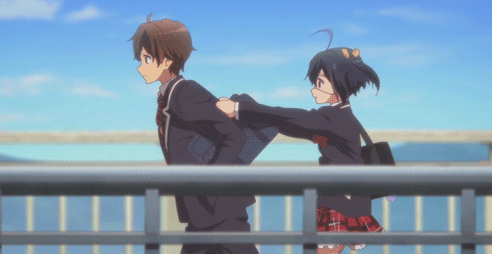
Rikka seems like the sort of character who, in any other piece of media, would be the butt of a joke. Indeed, there are many comedic shenanigans over the course of the series about how silly it is that Rikka believes she's a dark sorceress. But the heart of LC&OD is much kinder and warmer than I was led to believe by the premise. The show ends up kind of being about what it's like to date somebody who's neurodivergent, or even sometimes what it's like to date somebody AS a neurodivergent person. Everybody around Rikka - her sister, her friends, her boyfriend - cares about her very much. And even if the "magic" that Rikka creates isn't real, in other ways it very much is. Rikka brings the group of friends together and helps them bond in powerful, even magical ways.
Kyoto Animation, the studio that produced both seasons of Love, Chunibyo & Other Delusions, previously made a series called The Melancholy of Haruhi Suzumiya, a show about a girl who had powerful magic but didn't know she was using it, and mostly used that power to be an asshole. Love, Chunibyo & Other Delusions is like the polar opposite of that show: Rikka has less power than she thinks she does (or does she?), but she uses that power with kindness and love.
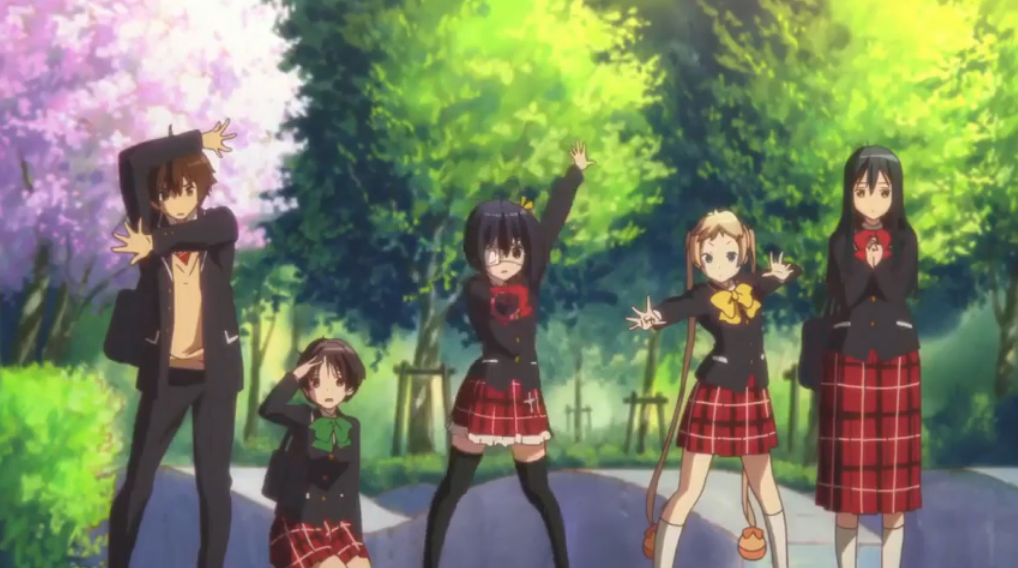
I loved the characters of this show. I loved the ridiculous situations they got into, particularly when the animation really went all-out with the "magical" situations that Rikka and her friends could see around them. The series is endlessly creative in both seasons. But most of all, the series really touched me because I saw important aspects of myself represented and depicted with empathy and humanity. That's one of the most powerful experiences with a show I've had all year.
#2
This year was rather infamously so full of good anime that it was impossible to get to most of it. I still have a fairly long list to get through. But while most people were obsessing over Wonder Egg Priority in the winter, I had my heart stolen by Otherside Picnic.
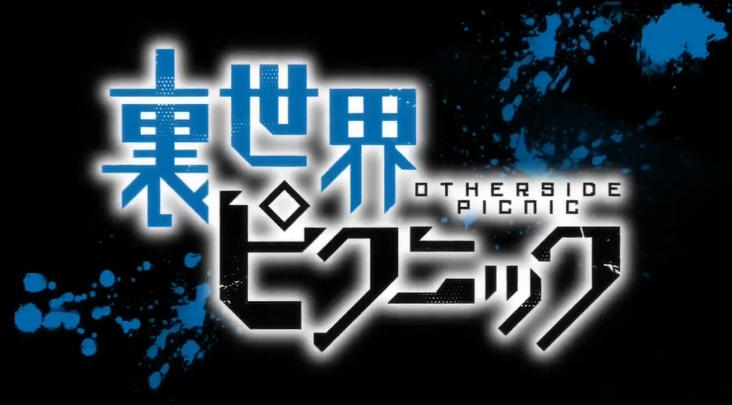
Based on a light novel series, Otherside Picnic is about a couple of girls who find their way to an alternate universe full of strange horrors and eldritch abominations. One girl has the ability to see invisible spirits, and the other girl has the ability of owning a firearm, and together they decide to take on contracts to hunt down otherworldly horrors and bring them back home.
In concept, the show honestly does not have a lot to it, although it IS specific enough to be the exact short of bullshit I love. But in execution, this show is gay as fuck. It is not quite as gay as the light novel series (but I imagine that if this show were to ever get a second season, kissing would be involved), but the way these two young women bond is incredibly gay and very sweet.
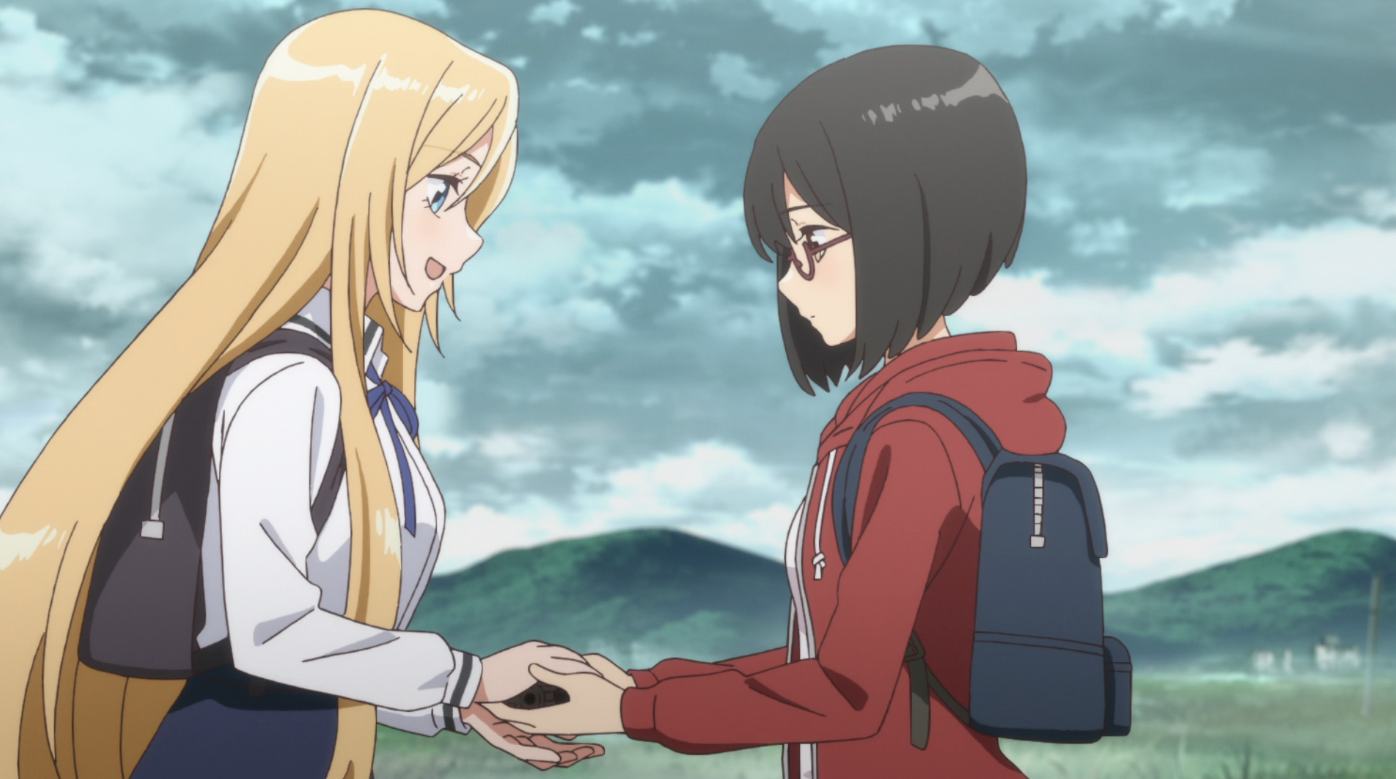
I don't really have a lot more to say about this show other than that if this already sounds like your bag, definitely check it out, cause I think it was mostly overlooked. It's just kind of cool to see a couple of girls kicking ass and falling in love in another world together. This show ruled.
#3
This show was a very strong contender for my show of the year, but a couple of things knocked it down below slots one and two. Nevertheless, The Owl House is an extraordinary achievement, and I love it to pieces.
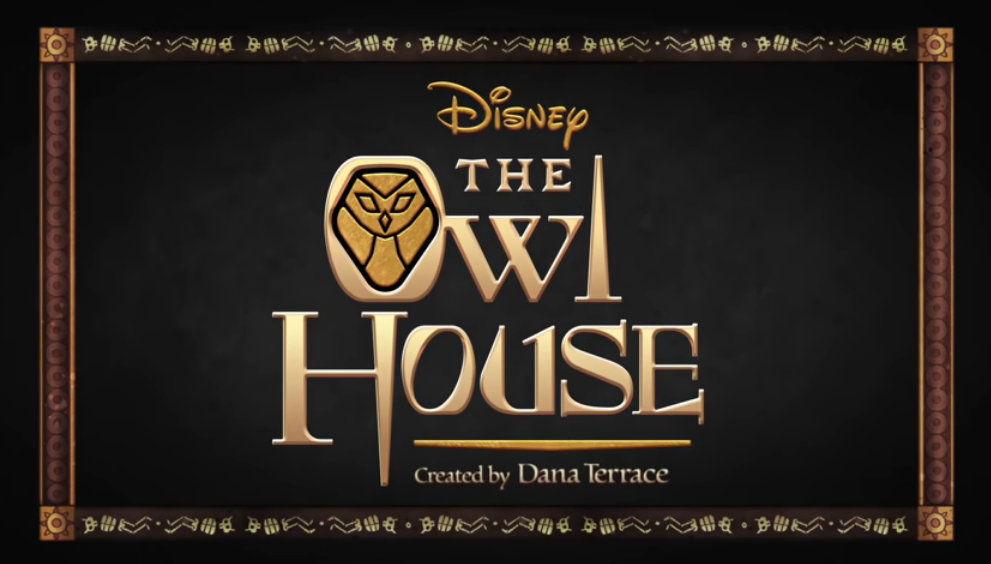
Beginning in early 2020, Disney began airing The Owl House, a new series in which a Dominican-American girl named Luz accidentally finds her way into a parallel world called the Demon Realm. (Oh, uhh, get used to that trope, there's a lot of that on this list.) Luz quickly befriends an old witch lady named Eda, and persuades Eda to teach her magic, which had always been her dream.
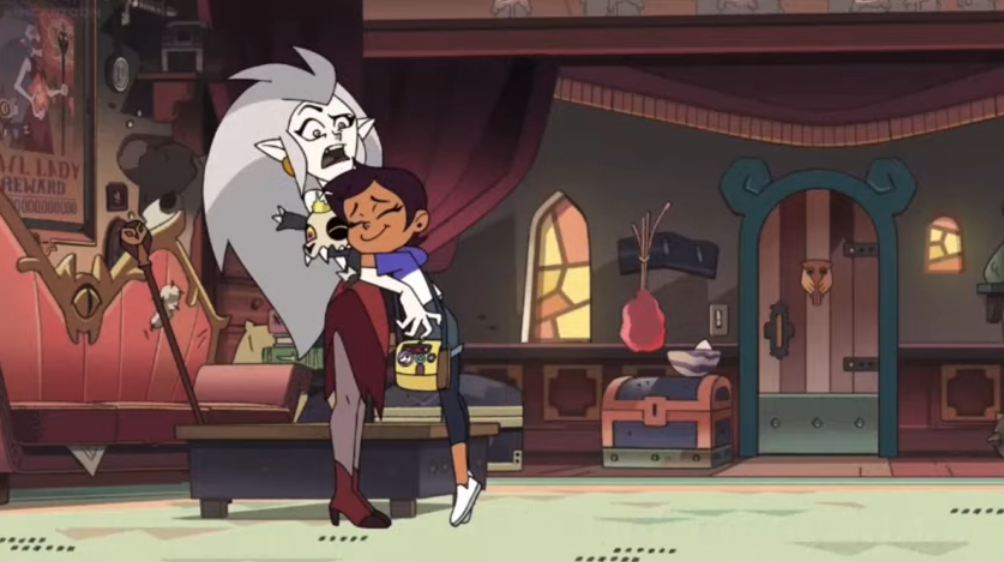
The Owl House is kind of a weird mishmash. One of the gimmicks of the show is that the Demon Realm isn't the fantastical world Luz expected it to be, but instead is sort of gross and very dangerous. It's kind of like Harry Potter as written by the Rick and Morty team. And there is A LOT of Harry Potter in the bones of this show. Very quickly, Luz is admitted to a school for magic in the Demon Realm, and there are plenty of jokes at Harry Potter's expense.
The series also seems to have borrowed its main relationship from Little Witch Academia, another animated series that took strong influence from Harry Potter. Amity, who goes to Luz's witch school, is at the top of her class and a huge bully. But as Luz and Amity get to know each other, they develop a friendship which eventually blossoms into romantic feelings. But whereas Little Witch Academia took the show's entire 25 episodes to get its leads to the point of "friendship plus maybe a bit more." The Owl House feels like it's speedrunning that relationship. Just 16 episodes in, the two share a prom night together; a few episodes later, Luz and Amity actually ask each other out.
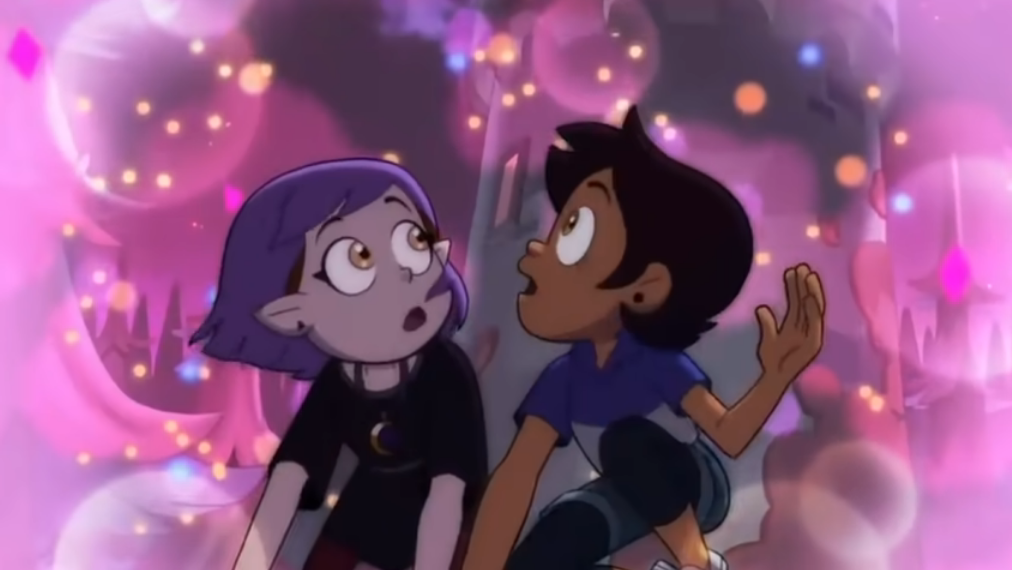
Now, I actually think The Owl House is a landmark piece of queer kids' animation on the level of Steven Universe (which was my show of the year in 2019) and She-Ra (my show of the year for 2020). It's not even just the core relationship, although that is fantastic. As a whole, the Demon Realm seems to be a metaphor for queerness, or at least for not really belonging in the life you grew up in. In addition to being bisexual, Luz Noceda is also canonically neurodivergent, and she takes to learning magic way better than she took to school in her old world. She even has to learn differently from her peers at her witch school because of her lack of natural magical ability. It's overall a fantastic depiction of growing up in a strange world, and learning how to become yourself even when that self is strange.
But I also think The Owl House takes a while to really become great. A lot of the first season feels like... for lack of better terminology, "traditional Disney kids' adventure show," like DuckTales or Gravity Falls. The good bits are there, but they're in between a lot of Harry Potter jokes.
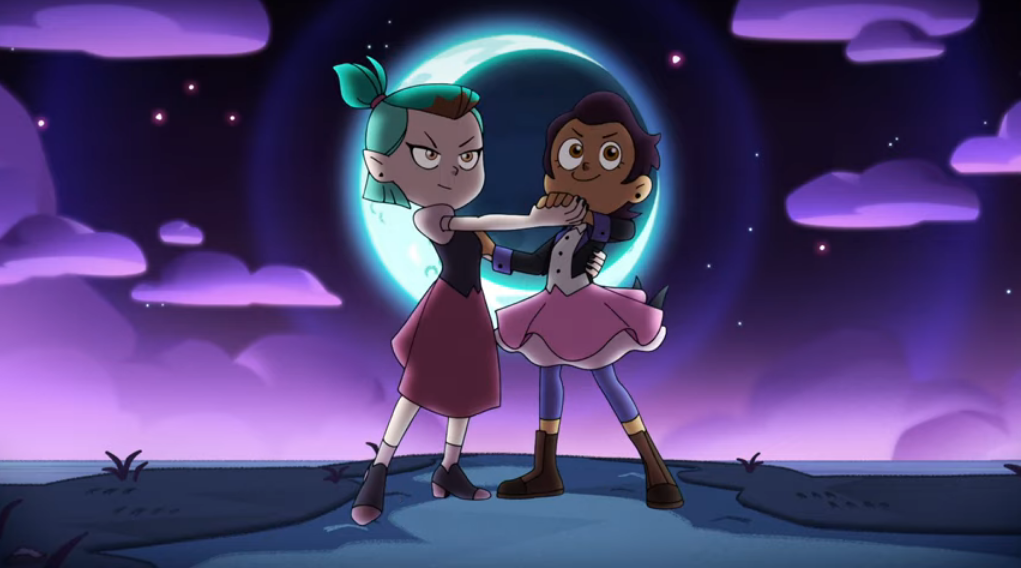
When Disney cancelled the show during its first season's run ("coincidentally" immediately after Amity was revealed to be gay during the prom episode), it felt like showrunner Dana Terrace and company decided to really go all out. Season two (which will be the final full length season) gets deep into the complicated backstories of its characters. It deals with mental health, complicated parental dynamics, and queer relationships at length. It introduces its first nonbinary character and gets queerer every episode. I really liked the show in season one; I fell head over heels for the show in season two.
If more of season two had aired in 2021, this might have become my show of the year. As it is, what we got was enough to make it very close. The Owl House is a phenomenal piece of work, and I'm extremely excited to see the rest of the series.
#4
The highest praise I can give to Flip Flappers is that it made me look at all other media differently. It's going to affect how I look at relationships in media (and in the world, for that matter) for a long time. That's how effective this show was at telling its story.
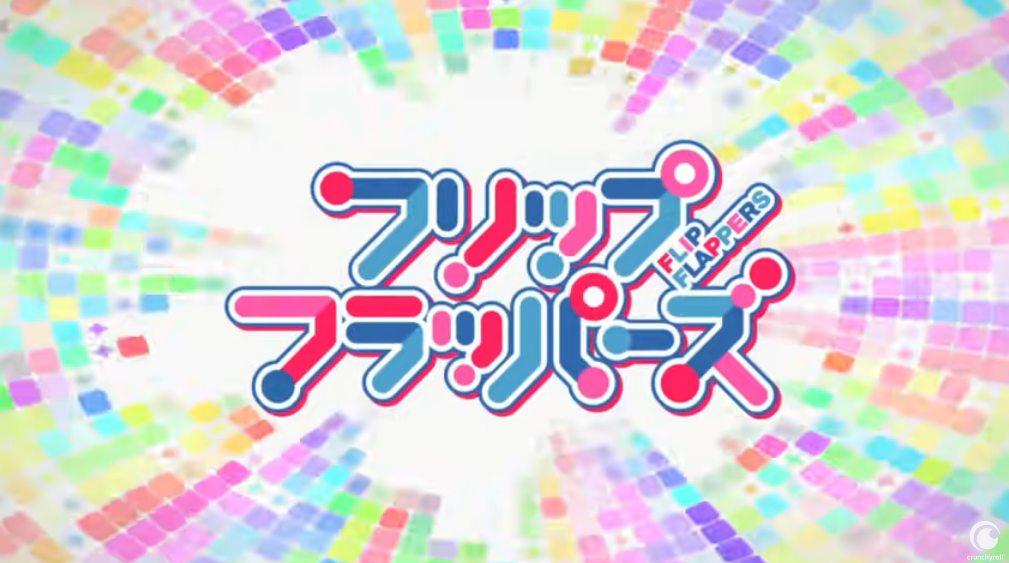
Flip Flappers is a show about a girl named Cocona who meets a very strange girl named Papika; together they fall into an alternate dimension (take a shot) called Pure Illusion. There, they are tasked with finding and retrieving "amorphous fragments" and bringing them home to Papika's organization for unknown reasons.
I actually didn't really put together how similar this show's plot is to Otherside Picnic until I typed it out. It's even more similar when I tell you that the two lead girls develop a very gay relationship over the course of the series. But no, this is different from Otherside Picnic, I promise.
Whereas Otherside Picnic was sort of dark and violent, Flip Flappers is much more playful and childish. "Pure Illusion" has the feel of a giant playground where Cocona and Papika get to use their powers together. The playful nature actually adds a lot to the show's messaging, as the characters grapple with what it means to add a sense of unreality to their world - through childish imagination, psychosis, or whatever it is that's going on.
At least, sometimes they're grappling with that sort of thing. Other times they're piloting a giant mech together, or fighting monsters in a desert. This show is just damn fun.
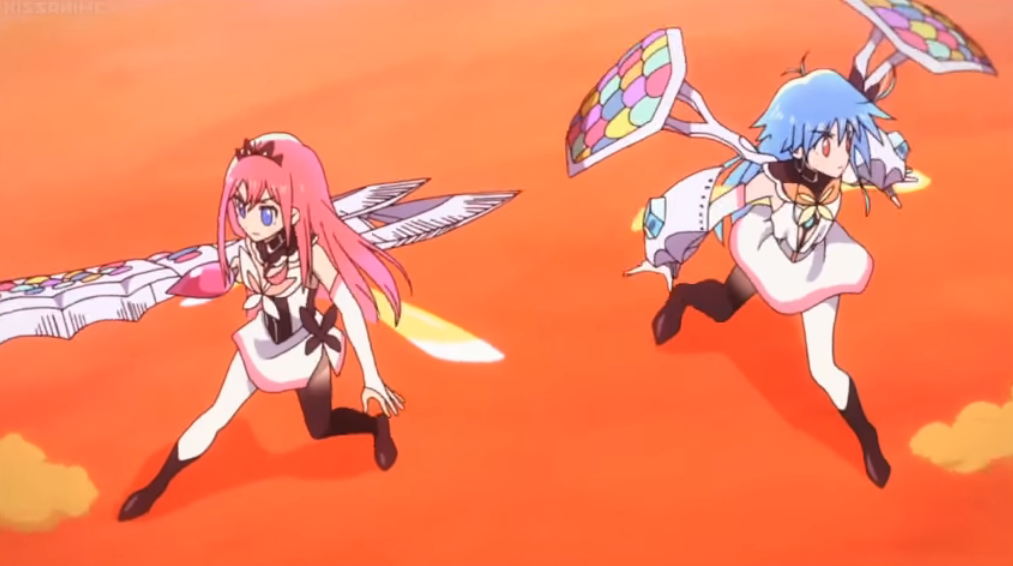
Flip Flappers is produced by the same studio that made Princess Principal, one of my favorite shows that I watched in 2020. In Princess Principal, the two main girls frequently disguise themselves as each other in order to commit heists and confuse both their enemies and their peers. Sometimes their identity confusion even affects themselves; Ange and Charlotte each had to learn how to live the other's life.
Flip Flappers does something a bit similar and a bit more straightforward. Papika and Cocona get their powers activated when they feel empathy for each other. When the two are transformed, they work extremely well together, and even look very similar to each other, down to swapping hair colors. Flip Flappers isn't just a show about love; it's about how love makes people work together better as a unit, and maybe even become a bit more like each other, or even something greater than the sum of their parts. That's something I've been noticing in more and more places since watching Flip Flappers, which to me feels like solid evidence that the show has left a serious mark on me.
#5
I said this list was a real battle: the previous #5 slot was solidly in place for a long long time, but then got bumped down to position #6 right at the end of the year. But if you ask me, Hilda is an extremely worthy member of the Top Five club of TV shows.
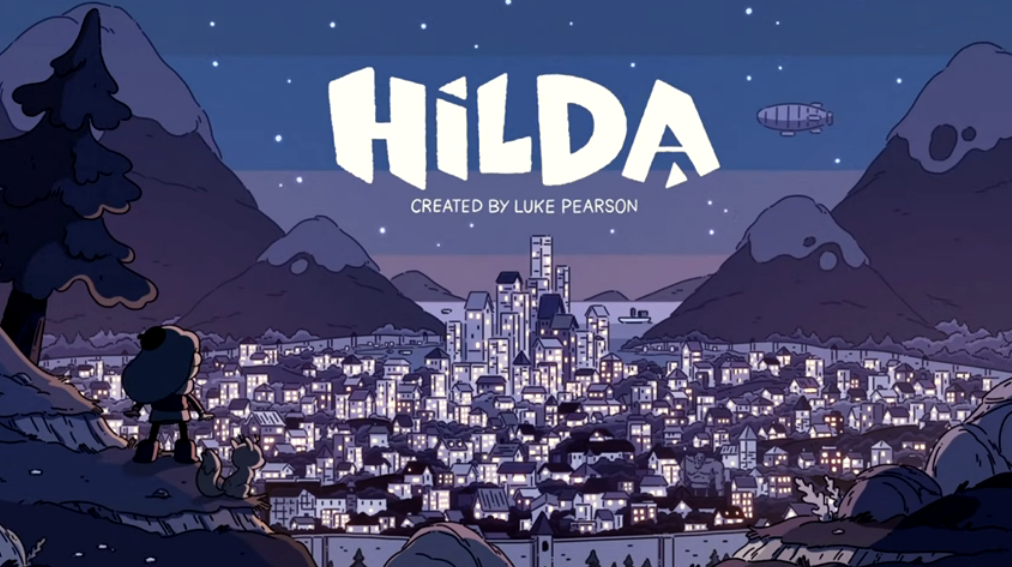
Based on a series of graphic novels, Hilda is a Netflix animated series about a young girl who lives in a cabin in the woods with her mother. Being so close to nature, Hilda is on extremely good terms with the various mythical spirits and creatures that inhabit it. When Hilda's home is destroyed in an accident, she and her mother move to the nearby city of Trollsburg, where Hilda gets to know a whole new group of friends, human and non-human alike.
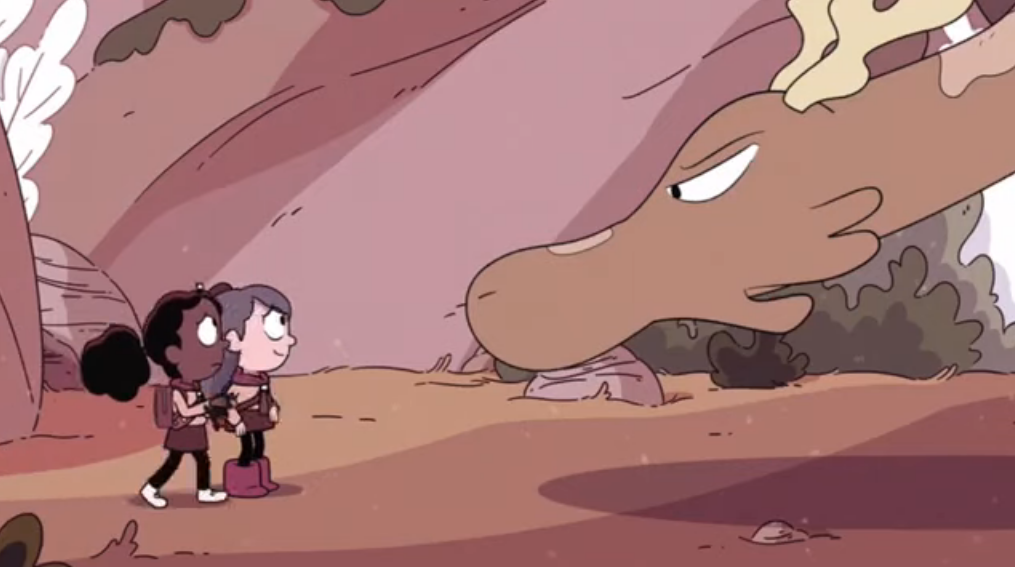
Hilda is just a very sweet and well-written show on all levels. It's essentially about getting to know your community, but it expands the definition of community so much that it's more like getting to know your ecosystem. Hilda, who seems to be neurodivergent, has a deeper understanding of and respect for nature and nonhuman things than most of the residents of Trollburg. This does also mean that human characters like her mother and schoolmates don't always understand her quite as well, which leads to some interesting stories there too.
As Hilda has continued into a second season and movie, it's only gotten more ambitious and interesting over time. Occasionally its messaging is a bit repetitive, but I've enjoyed the hell out of its adventures.
#6
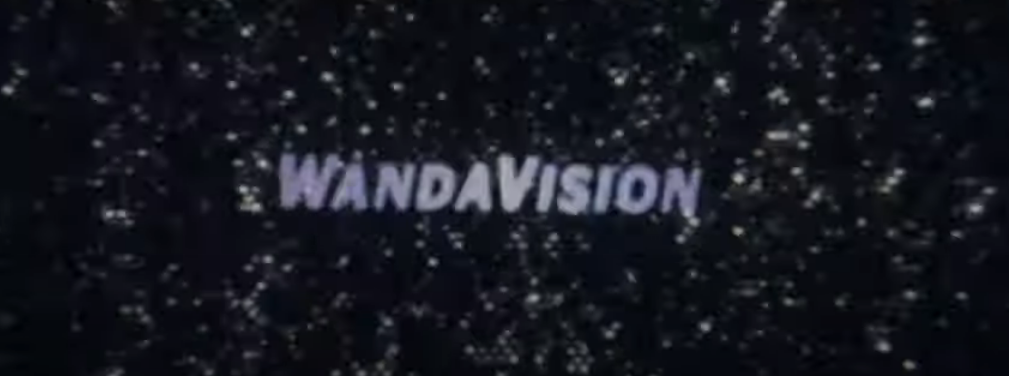
I have a strange relationship with WandaVision. As the first Marvel project since Spider-Man: Far From Home in summer 2019, I was extremely excited for WandaVision. Once it started airing, every week's release became an event, and I would make an effort to get up before work so that I could watch the new episode and avoid getting spoiled on social media. As I dealt with a major crisis in February, the show was there for me, an anchor to unreality when my reality was becoming stressful and difficult - which just mirrors a bit too well what the characters of WandaVision are going through.
Not only was WandaVision exciting from week to week, but it was also tightly focused, and stuck the landing on its ending. It also had a profound message that I needed to hear. No other Marvel show has managed to come close to doing that. WandaVision set the bar too high.
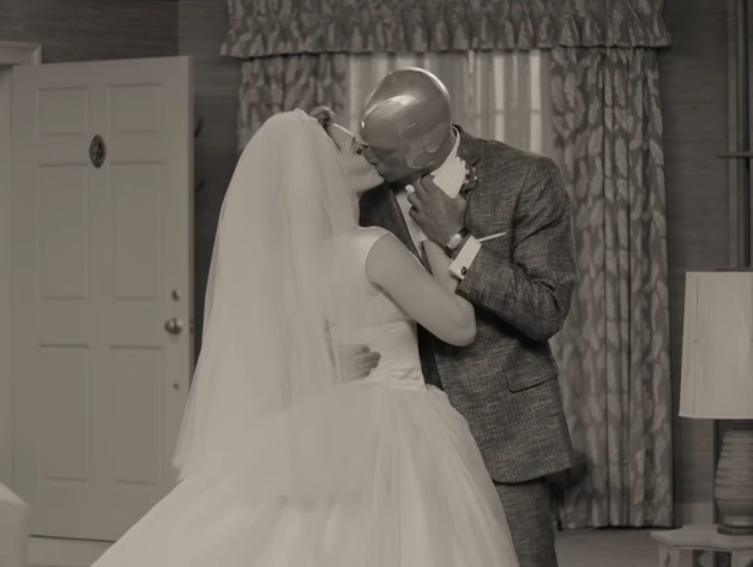
Following the traumatic events of Avengers: Infinity War and Avengers: Endgame, Wanda Maximoff and the android Vision have retired to a small West Virginia town to live a quiet peaceful life. There's just one problem: Vision died in Infinity War, so how can this reality be? As their reality slowly begins to fall apart, Wanda and Vision try to figure out what happened together, to ultimately devastating results.
WandaVision is presented as a series of pastiches of sitcoms. Most episodes parody a sitcom from a specific era - the Dick Van Dyke show in the 50s, for example, or Modern Family in the 2000s. The composers made an entirely new theme song for each era, but with every song containing the same four-note theme. It's a neat touch.
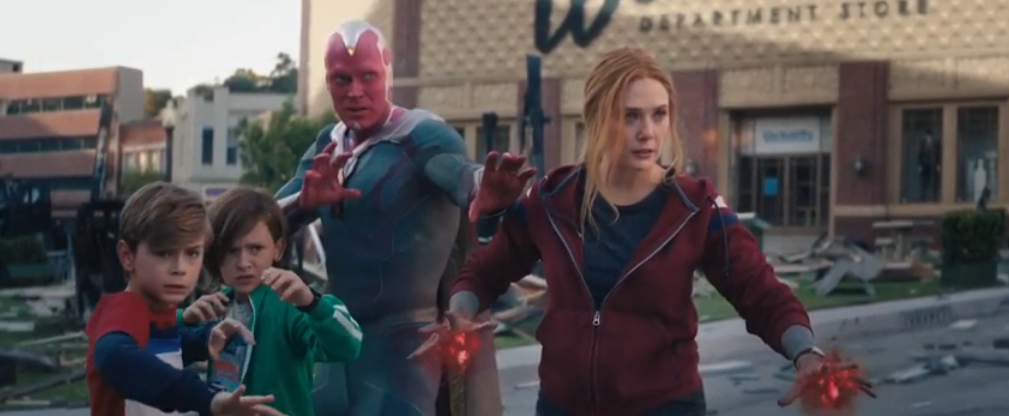
Once things finally fall apart for good, the last episode is essentially just a third act of a Marvel movie. I kind of thought that was cool, that WandaVision was positioning Marvel movies as an ultimate evolution of the sitcom format - easy to digest entertainment that ultimately keeps the same status quo from week to week.
WandaVision is a show about a lot of things. It's a show about processing grief and trauma - and a year into the pandemic, that's something I needed to hear. It's about love, and abuse, and where the line between those is. It's about being a damn cool little mystery that adapts some of the strangest popular stories in the Marvel canon.
Marvel sort of fell apart for me as a brand in 2021. Between the movies and shows this year just being kinda okay, and also the imperialistic and militaristic nature of the conflict in Marvel projects feeling harder and harder to stomach, I fell out of love with Marvel. But WandaVision still strikes a chord with me. It's a story about two people trying to make the best of things together. I can relate to that.
#7
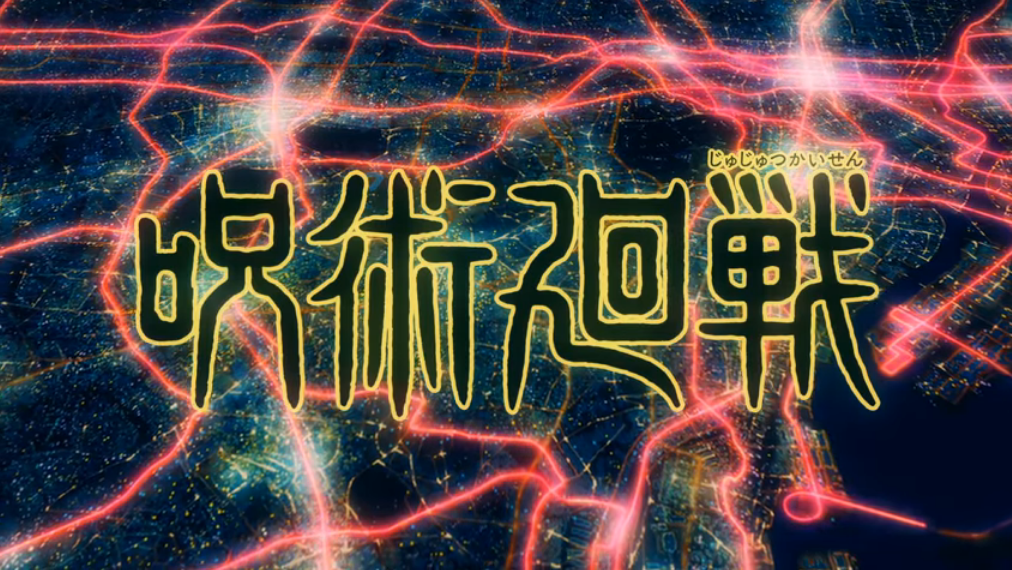
The story of the Jujutsu Kaisen anime is good for the same reasons the manga is good, and I read the manga first and will also cover it on the relevant list. So I was mostly looking at how Jujutsu Kaisen worked both as an adaptation and as a introduction to the story for people who missed the manga. And damn, it works great on both levels.
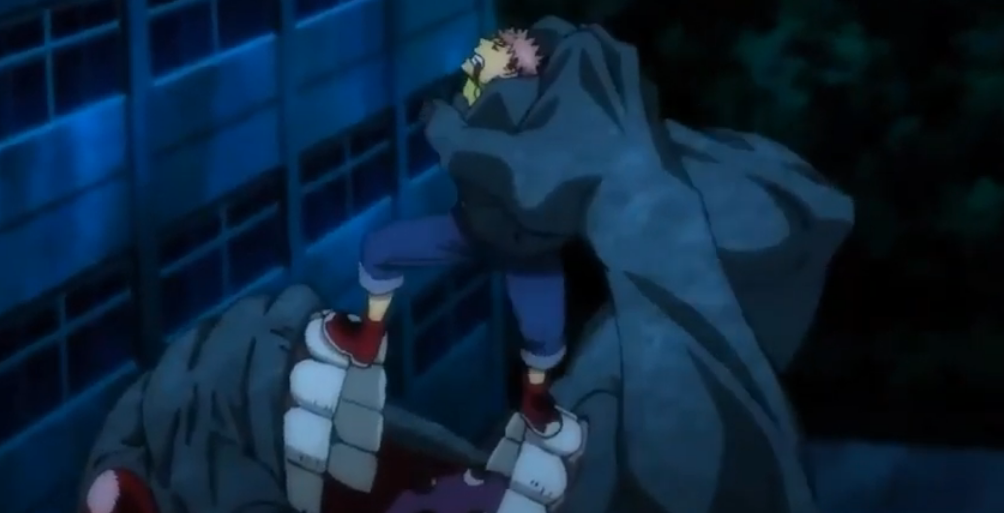
I have rarely seen animation this beautiful in a weekly anime show. The Jujutsu Kaisen manga art style is sketchy and angular; it's very distinctive and full of character. Jujutsu Kaisen's anime goes for a very different art style. Everything is vibrant and colorful, the spirits look eerie and often translucent, and in general things are a bit more rounded than angular. The character designs are still very much intact, but this world has a different and perhaps slightly more approachable feel than the manga's.
As for the story, Jujutsu Kaisen's anime really hit home just how much I loved so many of these characters, and remembered the storylines from the manga beat for beat. I hadn't quite realized how much I like the story until I saw it again in a different medium. Overall, JJK was an incredibly enjoyable experience, and I'm eagerly anticipating the prequel movie's US release.
RUNNERS-UP
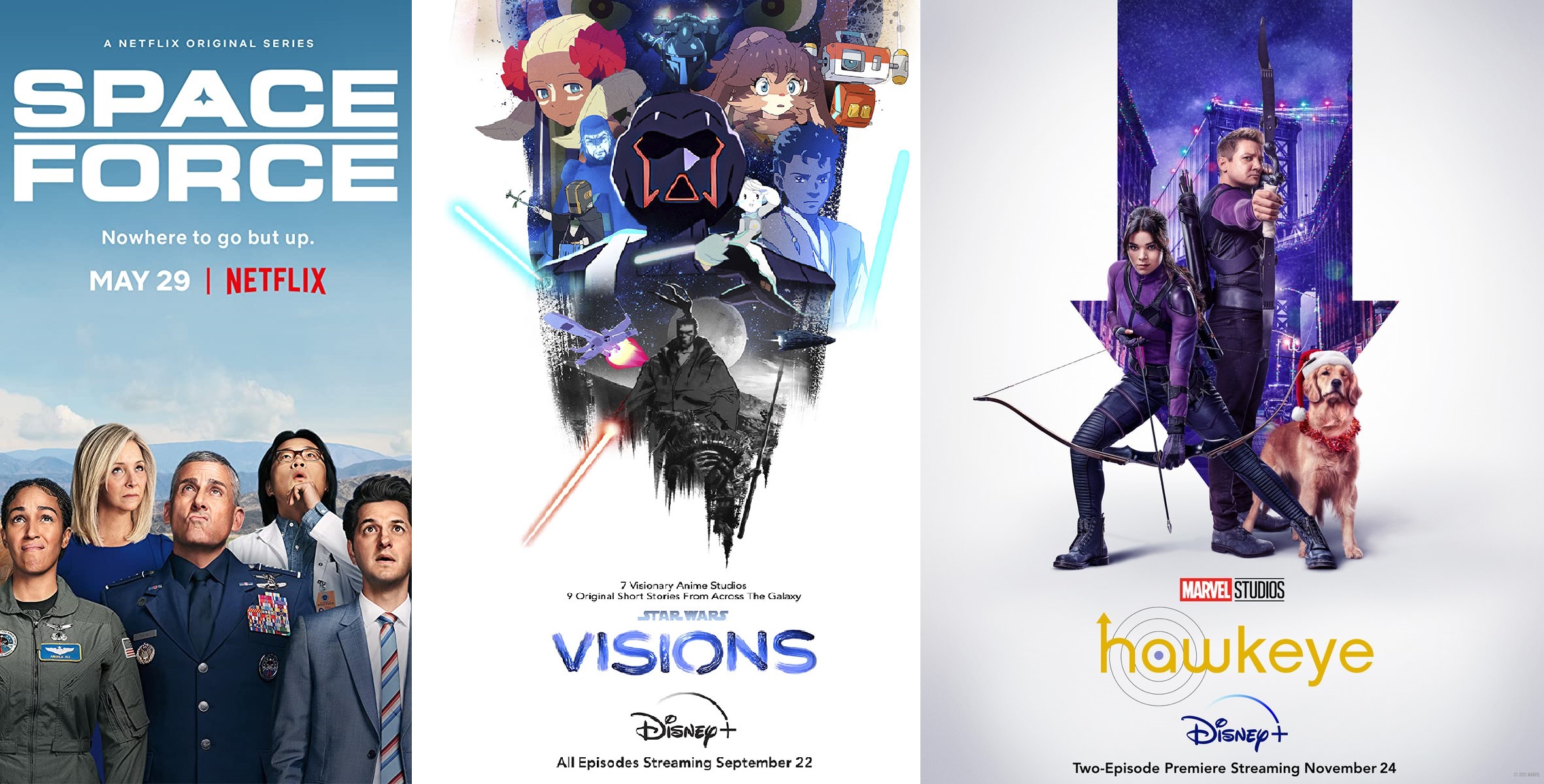
#8
Space Force was probably my biggest surprise of this year. The Trump administration is not the sort of subject I usually find funny, especially since that admin weaponized humor to gain power. But Space Force is more of a comedy about modern government in general, and what it means to have goals and ambitions in a world driven increasingly crazy by late-stage capitalism. Carrell and Malkovich especially are a blast, but the entire cast is having a lot of fun, and I'm interested to see where season 2 goes after that cliffhanger.
#9
Disney put out two animated anthology shows in September, and Star Wars Visions really put Marvel's What If to shame. While What If's episodes all have the same monotonous and rotoscoped visual style, Star Wars Visions is a group of Star Wars shorts conceived and produced by a smattering of major anime studios across Japan. Visions is the most creative Star Wars thing I've seen since The Mandalorian's first season, and it's also a love letter to both Star Wars and anime. I enjoyed the heck out of every episode.
#10
Most of the Marvel shows this year were a bit of a wash for me, but Hawkeye had smaller ambitions than most of them, and as a result worked a lot better than others. Hawkeye is basically a Christmas movie (can the dad make it home in time for Christmas?) dressed up as a Marvel film. The action scenes are fun, and there's tie-ins to the greater Marvel chronology, but generally in ways that work. Best of all, Hawkeye really humanizes Clint Barton; he's very much over the whole hero thing, and has a sweet relationship with his family. Hailee Steinfeld also kills it as the new Hawkeye, Kate Bishop.

#11
Documentaries aren't usually my go-to, but this year I watched some of The Last Dance, a retrospective about Michael Jordan's basketball career, with extensive interviews with Jordan and his teammates. It dramatized a years-long sports career in a compelling way, and was a fascinating picture of a guy with a huge ego who maybe actually deserves to have one, as well as an interesting snapshot of the 90s.
#12
Since this was the year I really got into Shonen Jump manga, it feels only fitting that I experienced some Gintama as well, a Jump comedy *about* Jump. Well, Jump's in it a lot, and the main characters read it a lot, but Gintama is mostly about a group of mercenaries who actually seek out jobs to help people, rather than killing them. It's a huge mishmash of characters, and I especially liked the cute alien girl.
#13
Due to all the drama about Cowboy Bebop the live-action show, I finally got around to starting Cowboy Bebop the original animated series. As a first impression, it's very good. The show is very slowly building its world and its characters, and I've been particularly impressed by the storytelling's efficiency while maintaining a languid pace. Hoping to catch the rest of this next year.
#14
I was surprised to learn that after creating My Little Pony: Friendship is Magic, Lauren Faust and co-writer M.A. Larson jumped to DC to create DC Superhero Girls, a cute animated series about a group of high school age superhero girls (Batgirl, Supergirl, Green Lantern, Bumblebee, Zatanna, and Wonder Woman). The stakes tend to be pretty low, but the stories are fun.
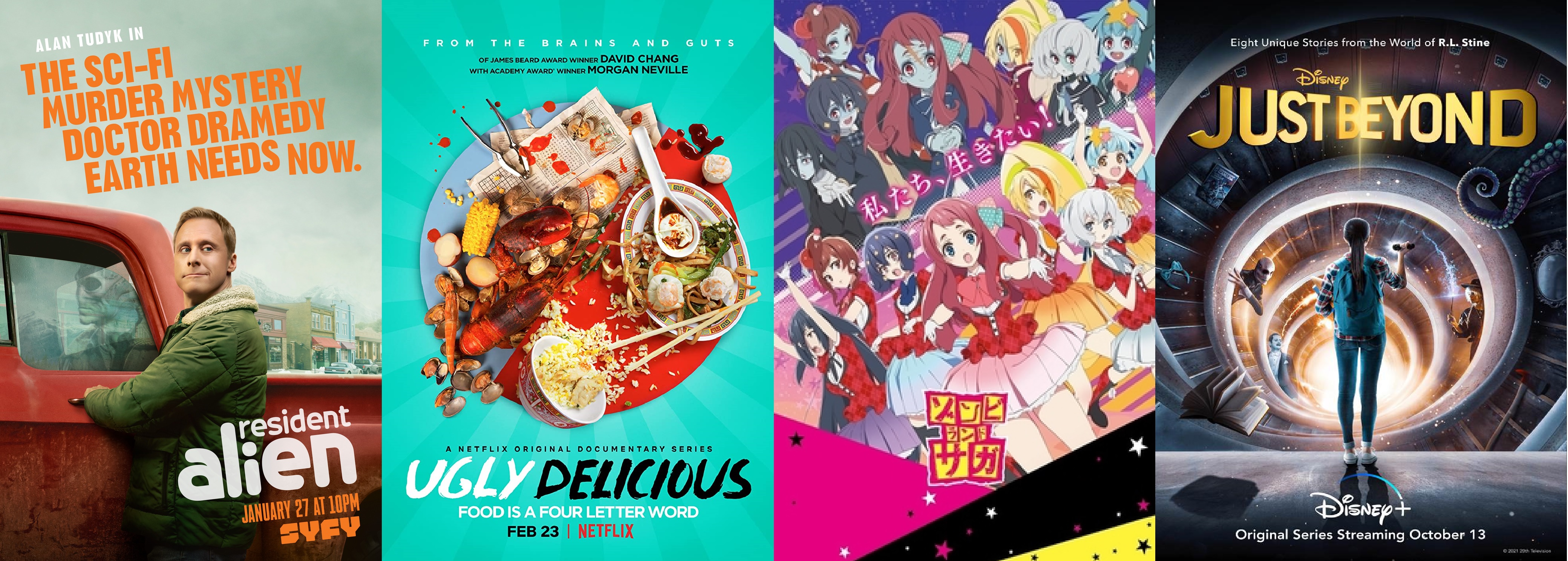
#15
The first few episodes of Resident Alien, a mystery/thriller/medical/sci-fi story starring an alien who wants to take over the world from a small town, were zany and really fun. Alan Tudyk is clearly having fun playing the alien character, and I enjoyed the show's take on neurodivergence.
#16
Chef David Chang hosted a 12-episode series for Netflix called Ugly Delicious. The stated premise of the show is to investigate every possible variation of particular types of food - for example, the first episode is about pizza, from the fanciest New York slices to the cheapest Domino's slice. Chang gives every class of food the time of day, no matter how strange or maligned. And as a result, the show ends up being about far bigger ideas than just the food we eat. It's also about how it gets there, and who makes it. A fried chicken episode becomes about racism, a Mexican food episode becomes about immigration, and a curry episode becomes about the homogenization of Asian foods. It's a fantastic show that any food lover should give a try.
#17
I had high hopes for Zombieland Saga a heavily memed show about a group of idols who are also zombies, prominently featuring a canonically transgender character. The show ended up merely being very good, but it's still a commendable show. The songs, performed by our zombie idol heroes, are all bops, and the comedic bits and dramatic character arcs all work really well.
#18
A quieter release on Disney+ this year was Just Beyond, a sort of Twilight Zone for kids. It is amazing. Oh, it's not very good. Most of it is corny, and a lot of the messaging doesn't land; only a couple episodes are really quality. But this show was still about as fun to watch and riff of as the real Twilight Zone, and leagues better than the recent Twilight Zone remake, so I thought this was definitely worth my time.
WORST TV OF 2021

#1
WandaVision set the bar high for Disney+ Marvel shows; The Falcon & the Winter Soldier buried that bar in the dirt. The Falcon & the Winter Soldier wants to be a thoughtful critique of racism in the Marvel universe; what it ends up actually being is six episodes of long-winded rationalizing to itself of why there "needs" to be a Captain America, when Sam Wilson was already doing perfectly fine as the Falcon. Not for the first or last time in the MCU, the villains here are a group of leftists; this time they're anti-nationalists who have good ideas but whose main problem is that they just really love killing people. Daniel Bruhl reprises his role as Baron Von Zemo, but his role here is even less consequential than his dumb part in Captain America: Civil War. Worst of all, A LOT of the discourse surrounding this show was about John Walker, the well-meaning fascist soldier who briefly takes on the mantle of Captain America. I hate that the team that made this show will go on to make more Captain America movie, because my only hope leaving this show was that they'd let somebody else write Sam next time.
#2
I know it's a classic, and I was all jazzed up to watch this in preparation of going through the entire Studio Trigger canon. But Gurren Lagann really, really, really did not work for me in its first few episodes. It's sexist, it's homophobic, and it's honestly kind of boring for a mech show. I know it gets better, but I just don't know that I have the patience to wait until it does.
#3
I had heard promising things about I've Been Killing Slimes for 300 Years and Maxed Out My Level, a harem isekai with a girl in the lead role for once, and primarily girls in its supporting roles. Maybe, I thought, populating this genre with lesbians might actually make it tolerable for me. NOPE. This show is still pretty gross. Oh well, it was worth a shot.
#4
Falcon & Winter Soldier could have been a blip; maybe it was just a bad team. The premise and writing of Loki looked cool. But Loki was my biggest Marvel disappointment this year. After a couple episodes of Loki being a time detective with Owen Wilson (COOL?!), Loki leaves the agency and teams up with a female alternate universe version of himself for a couple episodes. Then he leaves her behind, meets a bunch of other alternate Lokis, there's a big fight against a cloud, and an unrelated bad guy monologues for a bit. Roll end credits. What a slapdash mess. You can really tell that this show's scope was cut down by the pandemic, given how many scenes are just two or three people in a room, but I'm not sure a lack of pandemic could have saved this show; it's just too much of a clusterfuck.
#5
When The Owl House went on hiatus, I really hoped that Disney's newest show, The Ghost & Molly McGee, could fill that hole in my heart - a show about a ghost who haunts a girl, only to find that she's very happy to have the company. Unfortunately, the writing for this show really doesn't work for me. It's all just a bit too silly and doesn't build its characters enough.